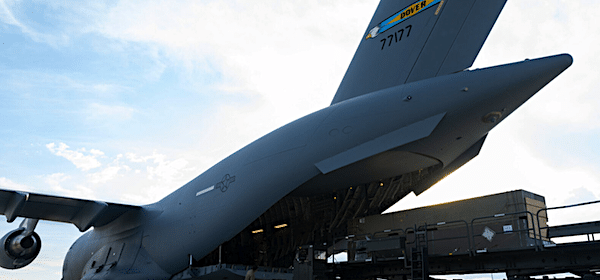“To be brutal about it, we need to see masses of Russians fleeing, deserting, shooting their officers, taken captive, or dead. The Russian defeat must be an unmistakably big, bloody shambles.…To that end, with the utmost urgency, the West should give everything that Ukraine could possibly use,” argues Eliot Cohen in The Atlantic.
What neither Cohen, who also famously pushed for the U.S. invasion of Iraq, nor The Atlantic acknowledge in the article is that most of the weapons Cohen mentions in the article–including long-range missiles, F-16s, and even F-35s–are made by funders of Cohen’s employer, the Center for Strategic and International Studies (CSIS).
While this might seem like a glaring conflict of interest that, at the very least, should be disclosed in the article, a new Quincy Institute brief that I authored, “Defense Contractor Funded Think Tanks Dominate Ukraine Debate,” shows that this article isn’t an exception; it’s the norm. America’s top foreign policy think tanks are awash in funding from the defense industry. They’ve dominated the media market related to the Ukraine war, and they seldom, if ever, disclose that many of the weapons they’re recommending the U.S. give to Ukraine are made by their funders.
In short, when you hear a think tank scholar comment on the Ukraine war, chances are you’re hearing from someone whose employer is funded by those who profit from war, but you’ll probably never know it. That’s because 78 percent of the top ranked foreign policy think tanks in the U.S. receive funding from the Pentagon or its contractors, as documented in the new brief.
At the very top, defense industry influence is even greater: every single one of the top 10 ranked foreign policy think tanks receives funding from the defense sector. And, for many think tanks, the amount of defense funding is enormous. For example, CSIS, the Center for a New American Security (CNAS), and The Atlantic Council all reported receiving more than a million dollars a year from the defense sector.
These and other think tanks that receive considerable defense sector funding have publicly advocated for more militarized U.S. responses to the Ukraine war and, compared to their counterparts at think tanks that accept little or no defense sector funding, have dominated the media landscape related to the Ukraine war.
The new brief analyzed mentions of these top ranked foreign policy think tanks in Ukraine war related articles that appeared in The New York Times, The Washington Post, and The Wall Street Journal. This analysis revealed that media outlets were more than seven times as likely to cite a think tank with defense sector support as they were to cite a think tank without it. Of the 1,247 think tank media mentions we tracked for the brief, 1,064 (or 85 percent) were mentions of think tanks with defense sector funding. And, the two most mentioned think tanks in Ukraine war related articles were think tanks flooded with defense sector dollars: CSIS and The Atlantic Council.
Yet, we only know the extent of CSIS and the Atlantic Council’s funding from the defense sector because both think tanks are commendably transparent about their donors and list all funders, within funding ranges, on their websites. Unfortunately, many of the nation’s top think tanks aren’t as forthcoming. In fact, the new brief found that nearly one third of the top U.S. foreign policy think tanks do not publicly disclose their donors. This included some of the most mentioned think tanks in media articles about the Ukraine war, like the American Enterprise Institute (AEI). Though AEI scholars have disclosed at public events that the organization receives funding from defense contractors, the organization does not list its donors on its website.
Media outlets were, similarly, not transparent about the conflicts of interest of the experts they were citing. In fact, none of the media mentions analyzed in the brief were accompanied by disclosures of defense industry funding of think tanks that were, at times, recommending policies that could financially benefit their funders.
All of this points to several clear recommendations for reform.
First, Congress should mandate that think tanks disclose their funders. Given think tanks’ prominent role in the policymaking process and the enormous amounts of money they receive from the defense industry, foreign governments, and other special interests, it’s imperative that the public and policymakers know who is funding the think tank expert they’re hearing from.
Second, media outlets should report any potential conflicts of interest with sources they’re citing about major U.S. foreign policy decisions. As the brief notes,
By not providing this information media outlets are deceiving their readers, listeners, or viewers.
Given the growing chorus of research documenting how think tank funding influences think tank work, the very least media outlets can do is let their readers know when a source might be biased, especially when they’re commenting on questions of war and peace.

